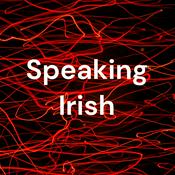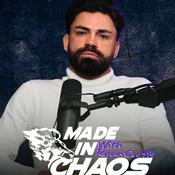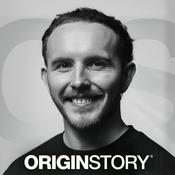35 episodes

PROMO: The Archaeology Show Ep 311
03/1/2026 | 43 mins.
As the APN takes a break this holiday season we’re taking this opportunity to bring you episodes of shows you may not be aware of. Today we have an episode from The Archaeology Show about lost cities.The Archaeology Show: Lost City or Lost Cause? Diving Into the Latest Atlantis ClaimsIn this episode of The Archaeology Show, we kick things off with a look at the recent discovery of a treasure-filled tomb belonging to the first known ruler of a Maya city in Belize, shedding light on ancient Maya leadership and ritual. In segments two and three, we dive into the latest headline-grabbing claim that Atlantis has been found off the coast of Spain. We break down what was actually discovered, examine the credentials of the lead researcher, and explore why the scientific community remains highly skeptical. Join us for a smart, approachable discussion that separates archaeological fact from fiction.The Archaeology Show on the APN Links:Segment 1Archaeologists Unearth Treasure-Filled Tomb Belonging to the First Known Ruler of a Maya City in BelizeScientists find tomb of a Maya king and his ancient treasures. But who was he?Segments 2/3Archaeologist Says He's Found Atlantis in Groundbreaking DiscoveryArchaeologist claims to have found Atlantis off the coast of Spain and has video to prove itAtlantis Found (Again)! And Exasperated Scientists (Again) Raise Their EyebrowsCosmic Summit 2025: The Mount Everest of Laughable Pseudoarchaeological Nonsense! - Ep 165Cosmic Summit 2025. Flint's BRUTAL Reaction with Dr Andrew KinkellaArchPodNetAPN Website: https://www.archpodnet.comAPN on Facebook: https://www.facebook.com/archpodnetAPN on Twitter: https://www.twitter.com/archpodnetAPN on Instagram: https://www.instagram.com/archpodnetAPN ShopAffiliatesMotion Hosted by Simplecast, an AdsWizz company. See pcm.adswizz.com for information about our collection and use of personal data for advertising.

ENCORE - Why this Ice Age Bone Needle is so Important. - Ep 09
06/12/2025 | 49 mins.
Do you have your pens at the ready? It’s pop-quiz time! Since David’s away for this episode, he’s given you a refresher on why bone needles are so important! This may or may not relate to a certain episode sequel he’s been working on…Here’s a recap of Episode 9!In this episode of Ethnocynology, David highlights a recent paper published about a bone needle he helped excavate in the summer of 2022.While David wasn’t an author on the paper, he was there when it was excavated, recorded the moment, and recently conducted interviews with the two leading authors of the paper.David discusses how he read a comment on his post about the needle that made him stop to think about how important such a small item could be to people on the ice age plains.David discusses how to read an academic paper, while conducting interviews with the researchers into the podcast.Links:Early Paleoindian use of canids, felids, and hares for bone needle production at the La Prele site, Wyoming, USAdavidianhowe.comDavidianhowe.com/storeArchPodNetAPN Website: https://www.archpodnet.comAPN on Facebook: https://www.facebook.com/archpodnetAPN on Twitter: https://www.twitter.com/archpodnetAPN on Instagram: https://www.instagram.com/archpodnetTee Public Store: https://www.teepublic.com/stores/archaeology-podcast-network?ref_id=5724AffiliatesMotion Hosted by Simplecast, an AdsWizz company. See pcm.adswizz.com for information about our collection and use of personal data for advertising.

Promo - Life Along the Trails: 19th Century Nebraska Archaeology with Nolan Johnson - Plains 30
22/11/2025 | 36 mins.
Please enjoy this Promo episode from the Great Plains Podcast this week!In this episode, I sit down with Nebraska archaeologist Nolan Johnson to talk about his work uncovering and interpreting the state’s rich historic past. We begin with the Beaver Creek Trail Crossing, a site that offers a glimpse into the experiences of travelers along the overland trails and the material traces they left behind. Nolan shares the story of how the site was investigated, what artifacts reveal about life on the move, and why these places remain important today.In the second half, our discussion broadens to post-1492 archaeology across Nebraska, what makes it distinct, what challenges archaeologists face in preserving and interpreting recent pasts, and why connecting communities to these stories continues to matter.Links:For more episodes of The Great Plains Archaeology Podcast head over to: https://www.archaeologypodcastnetwork.com/great-plains-archaeology/30ArchPodNetAPN Website: https://www.archpodnet.comAPN on Facebook: https://www.facebook.com/archpodnetAPN on Twitter: https://www.twitter.com/archpodnetAPN on Instagram: https://www.instagram.com/archpodnetAPN ShopAffiliatesMotion Hosted by Simplecast, an AdsWizz company. See pcm.adswizz.com for information about our collection and use of personal data for advertising.

The Dogs of Mesoamerica with Zac Lindsey - Ep 27
08/11/2025 | 57 mins.
In this episode David sits down with Zach Lindsay, a Mayanist archaeologist and board member of the Institute of Maya Studies, to explore the intersection of Mesoamerican archaeology, art, mythology, and—of course—dogs! From the monumental pyramids of Teotihuacan to the symbolic underworld journeys of ancient Maya souls, Zach brings a journalist’s curiosity and an archaeologist’s precision to one of the world’s oldest human–dog relationships.TranscriptsFor a rough transcript head over to: https://www.archaeologypodcastnetwork.com/ethnocynology/27Links:davidianhowe.comDavidianhowe.com/storeFollow Zach on Instagram: @arkeogatoArchPodNetAPN Website: https://www.archpodnet.comAPN on Facebook: https://www.facebook.com/archpodnetAPN on Twitter: https://www.twitter.com/archpodnetAPN on Instagram: https://www.instagram.com/archpodnetAPN ShopAffiliatesMotion Hosted by Simplecast, an AdsWizz company. See pcm.adswizz.com for information about our collection and use of personal data for advertising.

Horses (Part 3) The Pawnee, the Plains, and the Spanish Caribbean with Dr. Carlton Shield Chief Gover - Ep 26
25/10/2025 | 47 mins.
In this third installment of the “Horse Series,” David sits down with Dr. Carlton Shield Chief Gover to explore the intersections of Indigenous oral traditions, radiocarbon dating, and the archaeology of horses across the Great Plains and the Caribbean.Carlton shares how Pawnee oral traditions align with archaeological evidence, revealing new insights into the transitions from hunter-gatherer to agricultural societies. The conversation expands into how the reintroduction of horses revolutionized Plains warfare, movement, and culture — transforming not just how people traveled, but how they defined bravery, honor, and trade.The episode then dives underwater — literally — as Carlton recounts his work with the Indiana University Underwater Science Program in the Dominican Republic. From Spanish shipwrecks to 400-year-old hazelnuts used to fight scurvy, the discussion highlights how horses, colonization, and trade converged across continents and oceans.Topics CoveredIntroduction to Carlton Shield Chief Gover’s background and Pawnee heritageMerging radiocarbon dating with Indigenous oral historiesThe importance of corn, maize agriculture, and Plains village lifeHow the horse transformed Indigenous cultures and warfareThe practice of “counting coup” and individual honor in combatThe spread of horses before European contactCarlton’s archaeological work in Ukraine and comparisons to the Great PlainsUnderwater archaeology in the Dominican RepublicSpanish shipwrecks, horseshoes, and gold-gilded stirrupsHazelnuts as a 16th-century Spanish cure for scurvyDangers and logistics of underwater fieldworkHow early Caribbean horses may connect genetically to modern mustangsThe future of Plains and underwater archaeologyAbout the GuestDr. Carlton Shield Chief Gover is a citizen of the Pawnee Nation and a leading voice in Indigenous and Plains archaeology. His research integrates oral histories, Bayesian radiocarbon analysis, and archaeological evidence to create a fuller understanding of the Great Plains’ deep past. He currently serves as Assistant Professor and Curator of Archaeology at the University of Kansas and hosts The Great Plains Archaeology Podcast.Follow Carlton on InstagramListen to The Great Plains Archaeology PodcastMentioned in This EpisodeHoof Beats: The Horse in Human History — Dr. William TaylorCassidy Thornhill’s work on the Blacks Fork HorseYvette and Paulette Steeves’ research on pre-contact horsesIndiana University Underwater Science Program (Dr. Charles Beeker)University of Kansas Natural History MuseumKey Quote“When you reanalyze radiocarbon data with Indigenous oral traditions, you actually illustrate a much more holistic picture of human history.” — Dr. Carlton Shield Chief GoverTranscriptsFor a rough transcript head over to: https://www.archaeologypodcastnetwork.com/ethnocynology/26Links:davidianhowe.comDavidianhowe.com/storeArchPodNetAPN Website: https://www.archpodnet.comAPN on Facebook: https://www.facebook.com/archpodnetAPN on Twitter: https://www.twitter.com/archpodnetAPN on Instagram: https://www.instagram.com/archpodnetAPN ShopAffiliatesMotion Hosted by Simplecast, an AdsWizz company. See pcm.adswizz.com for information about our collection and use of personal data for advertising.
More Education podcasts
Trending Education podcasts
About Ethnocynology with David Ian Howe
Listen to Ethnocynology with David Ian Howe, anything goes with emma chamberlain and many other podcasts from around the world with the radio.net app

Get the free radio.net app
- Stations and podcasts to bookmark
- Stream via Wi-Fi or Bluetooth
- Supports Carplay & Android Auto
- Many other app features
Get the free radio.net app
- Stations and podcasts to bookmark
- Stream via Wi-Fi or Bluetooth
- Supports Carplay & Android Auto
- Many other app features


Ethnocynology with David Ian Howe
download the app,
start listening.



































